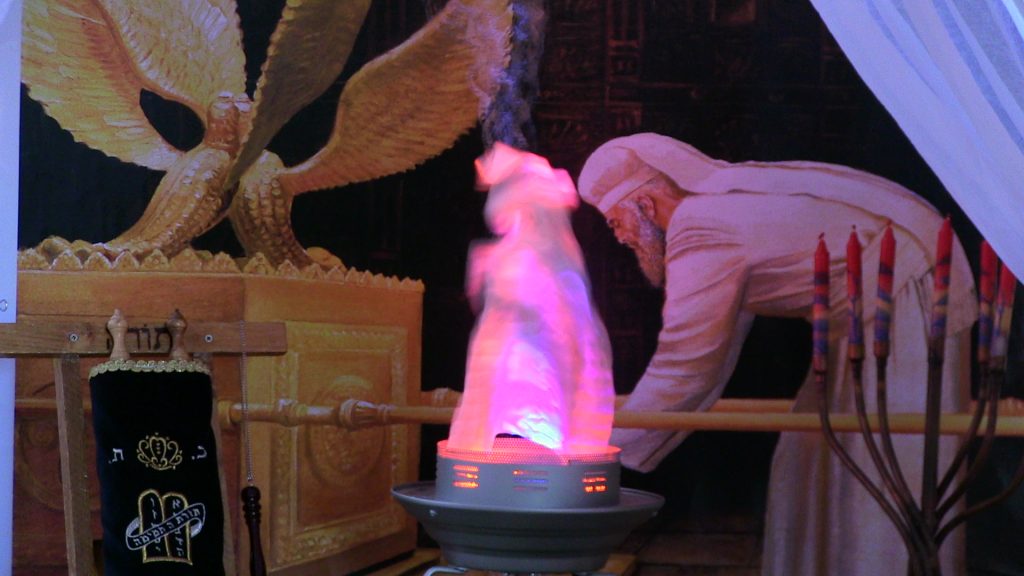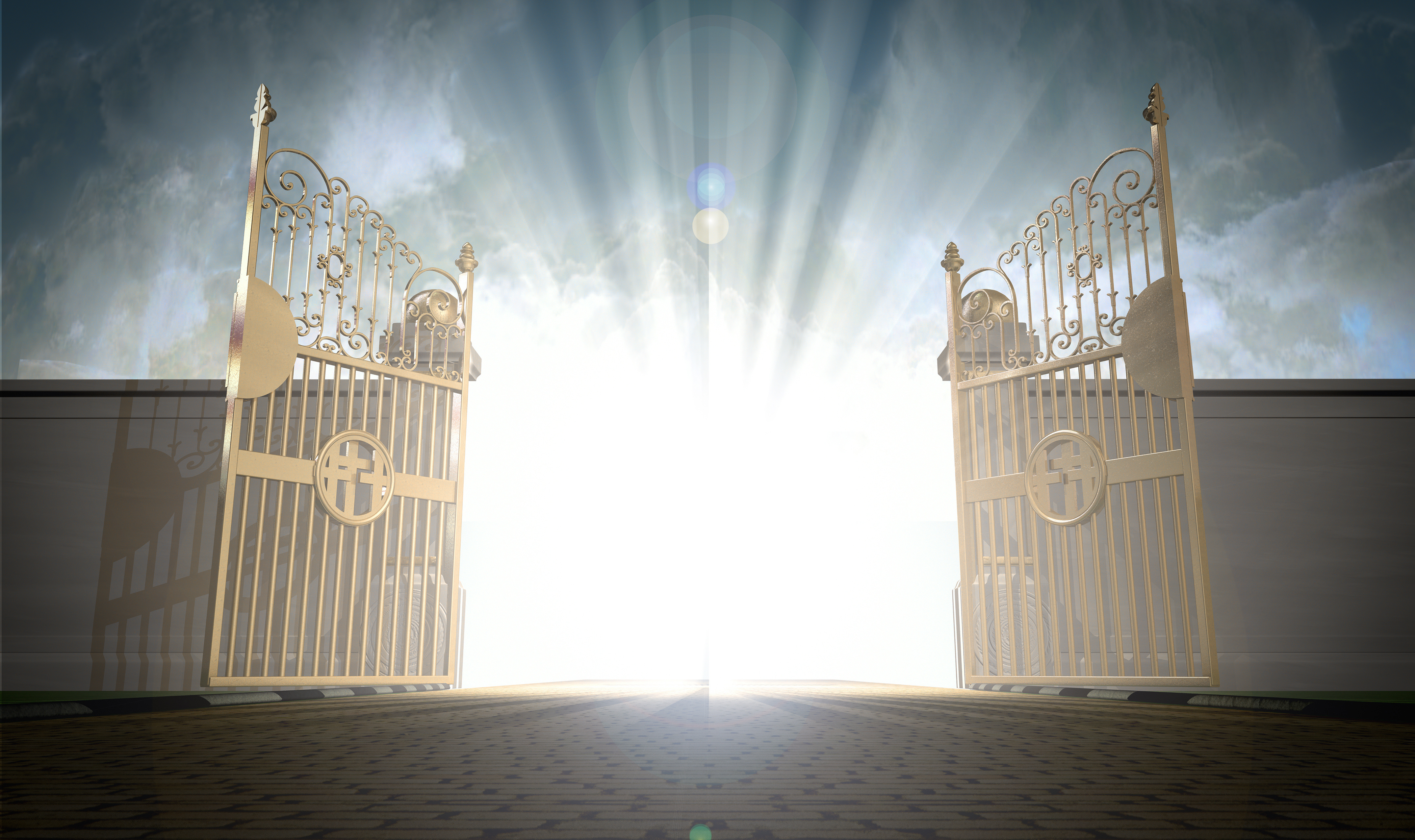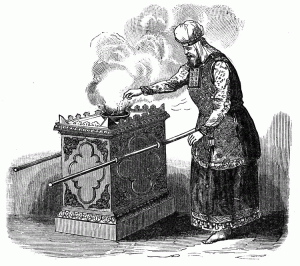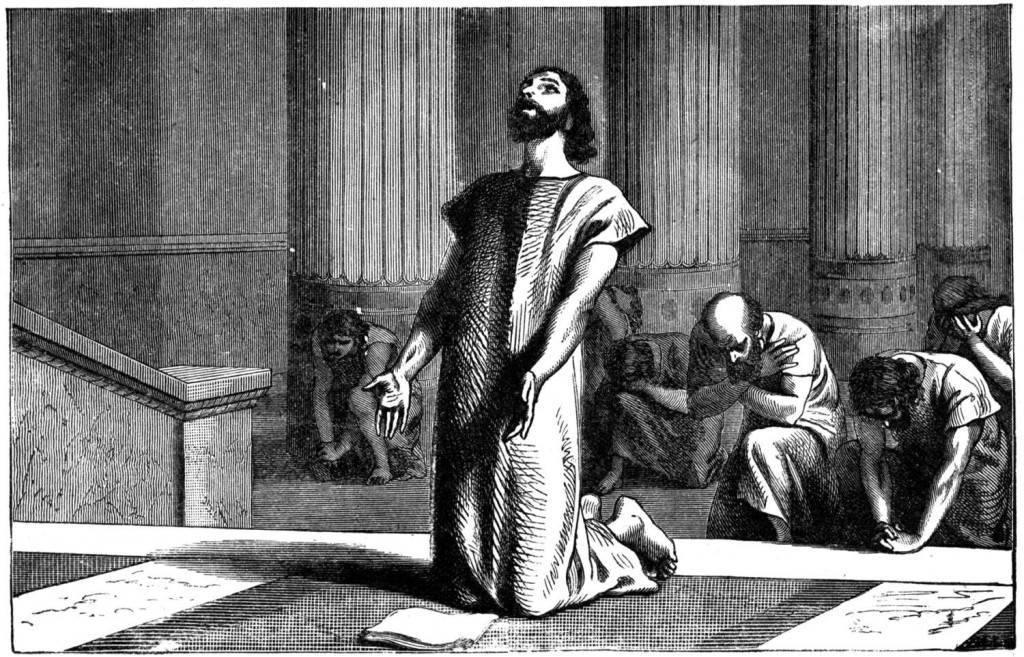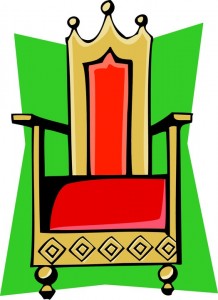Exodus 25:22, There I will meet with you. Between the two cherubim was the glowing, anointed, manifest Presence of YHVH called the Shekinah. This pictures the glories of the New Jerusalem and life happily ever after for Yeshua and his spiritual bride.
The manifest Presence of Elohim is the last of seven “items” in the tabernacle and it is also the one ingredient that is missing in all the other religions of the world. Yes, many of the world’s false religions have their signs, wonders and supernatural experiences, but these are cheap demonic counterfeits that only imitate the real thing. In the end, despite all that they promise, they bring shame, confusion, guilt and eventual death and eternal separation from Elohim.
In the Tabernacle of Moses, the first six items were made with human hands. Six is the number of man. YHVH’s Presence cannot be constructed by the hand or mind of man. It just is, and it doesn’t come as a result of anyone conjuring it up. It comes as a result of repentance, holiness, obedience and humans seeking Elohim with all their hearts, while following the protocols he has laid out, which, when followed, lead to him. There is no other way.
The Presence of Elohim is what is missing in every other of the world’s religious systems. It was even missing in the Second Temple!
In YHVH Elohim’s Presence, a human is miraculously changed and transformed spiritually from the inside out.
There I will [Heb. ya’ad] meet with you…I will commune [Heb. d’bar]…I will give you. This entire verse is pregnant with spiritual meaning relating to the holy of holies, which was YHVH’s point of contact between heaven and earth. From this Continue reading

